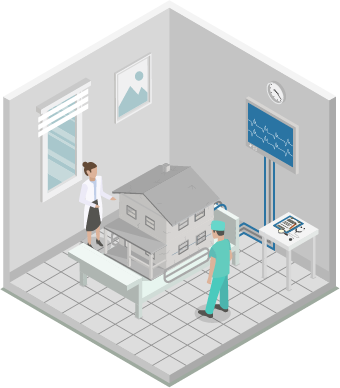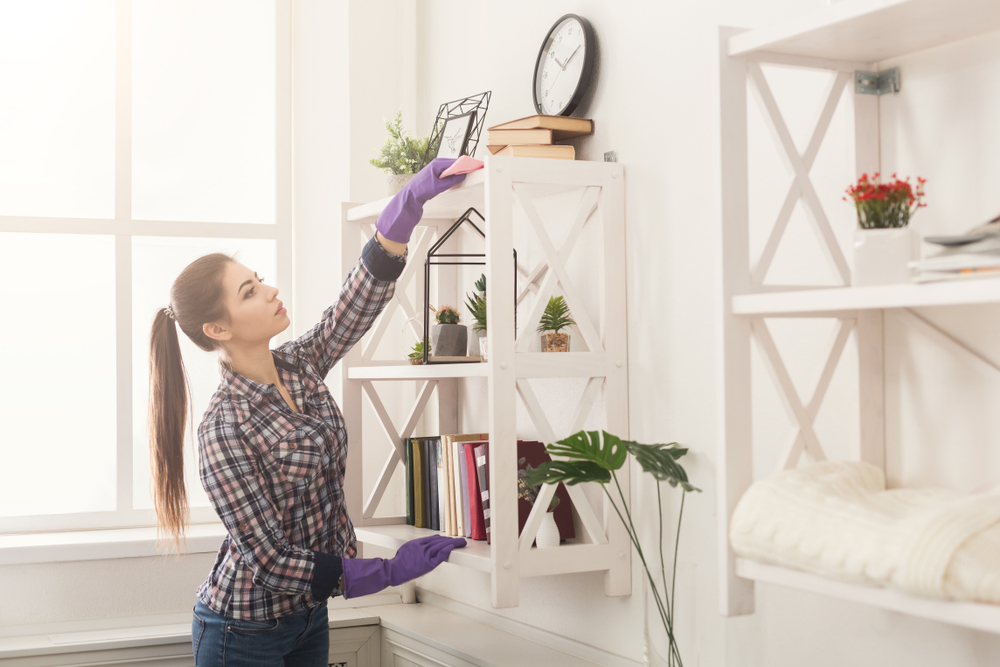“I have asthma, can I keep my pet?”
Every animal-loving family with an asthmatic member has asked the same question. Even when pets trigger allergies and asthma, many people are very hesitant to consider getting rid of furry (or feathered) friends. Learning how to deal with asthma while living with your pets can be a challenge.
According to the American College of Allergy, Asthma and Immunology and estimated 10% of people are allergic to pets with cat allergies twice as common as dog allergies. For those with asthma, pets, specifically their dander and saliva, can trigger serious and sometimes life-threatening breathing issues.
So can you co-exist with pets if you have allergies or asthma? The answer is often yes. In consultation with a medical professional, you may find that over the counter allergy medications and prescription medications can manage your symptoms (consult your physician before using any medication for an extended period). Immunotherapy (like allergy shots) can also be helpful. In addition, we’ve listed several things on how to deal with asthma which you can try around your home to minimize the impact pets can have on your health:
- Make bedrooms pet free zones. Since people spend 8 or more hours a night in the bedroom, exposure to pet dander is greater here than in other rooms where you spend less time. Exposure is even higher if your pets sleep with you. Keeping pets off of beds and out of bedrooms can help minimize exposure at night. Washing bedding weekly in hot water can also help. Also consider keeping pets off of furniture and, if it is a child who is affected, out of play spaces.
-
- Use care when petting pets. Depending on your personal sensitivity, even petting a cat or dog can lead to a reaction, so you may need to avoid contact as much as possible. However, if your sensitivity is less, just thoroughly washing your hands after contact may be sufficient.
-
- Groom pets regularly. As pet dander is what typically triggers allergies and asthma, minimizing the amount of dander that your pet sheds around your home can help minimize symptoms. Bathing and brushing regularly can help. If possible, groom outdoors or over smooth, rather than carpeted, flooring so it is easier to clean up.
- Keep your home clean. Despite even the best efforts, pet dander will accumulate especially in carpets and on fabric furniture. Vacuum carpets and furniture regularly with a HEPA vacuum (the only way to identify a genuine HEPA is to look for one that is labelled as effective at 99.97% @ .3 microns). If you have smooth floors, regular damp mopping or dusting with an electrostatic cloth is generally sufficient. Try to avoid sweeping with a dry broom as it tends to stir up more dander than it actually collects!
-
- “Close” clothes in drawers and closets. Keep clothing as fur free as possible, but storing clothing (and bedding) in drawers and closets that are closed!
Other things you can do:
If you have a forced air system, make sure your filters are changed regularly (use a filter labelled MERV 11 or 12) and clean your ducts to keep dander from continuously circulating around your home. Some people find air purifiers to be helpful, but you want to be sure to choose one that is:
- Appropriately sized for the room you are placing it in
- Use HEPA filters effective to 99.97% @ .3 microns)
- Don’t “add” things to the air like ozone or fragrance
For more information on how to deal with asthma, read our other blogs:
Is your house making your allergies or asthma worse?
It’s not surprising if it is. We spend as much as 90% of our time indoors and are often not fully aware of what is in the air we breathe or how it gets into our home. Things like mold, dust, smog, can increase symptoms.
There is something you can do. Get your free, personalized Hayward Score today. Our comprehensive report will identify the major issues and even some uncommon triggers that are likely impacting the air in your home and give you practical, actionable solutions – so you can make the changes you need for a healthier home.
Take the Hayward Score survey now!
Hayward Score helps you discover how your home may be impacting your health in minutes – – for FREE!
Answer a quick set of questions then get a personalized list of action items. Transform your home and health today!

ARE YOU CONCERNED YOUR HOME IS MAKING YOU SICK?
Our guide on indoor quality will help you diagnose possible issues and implement intelligent solutions to improve the quality of the air inside your home.















